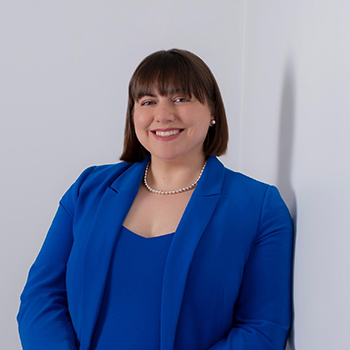Orelie Di Mavindi

Assessment Officer, Courts Administration Service (Federal Court)
Graduate Program in Public Policy, Administration & Law, Master of Public Policy, Administration and Law (MPPAL) 2019
Tell prospective students a bit about the work you do.
I have worked at Courts Administration Service (CAS), the public service arm of the Federal Courts since 2013. I have occupied a number of roles at CAS and was recently appointed an Assessment Officer at the Federal Courts in July 2019. An Assessment Officer is a quasi-judicial officer of the Registry designated by orders of the Federal Court and the Federal Court of Appeal to assess court costs, legal fees and expenses. In practice, following a Court decision, the unsuccessful party may be required to pay costs to the successful party. If parties are unable to reach a settlement agreement on the issue of costs, an Assessment Officer can determine the allowable costs to be paid on the basis of written submissions and/or an oral hearing. This determination is then rendered in a formal decision. An assessment officer's decision on costs can be appealed to a judge at the Federal Court.
In addition to assessing court costs, I have the privilege of assisting on a number of incredible Federal Court projects such as project managing the Court's first Centre for Access to Justice (CAJ). CAJ is a resource centre designed to enhance access to justice by assisting litigants without legal representation to navigate the Court.
Tell prospective students a bit about how your studies at York helped you to get where you are today.
I am constantly discovering new ways the MPPAL program has been beneficial to my career. For one, MPPAL sharpened my critical thinking skills. The program deepened my knowledge of public policy, administration and law in three distinct, but comprehensive modules. I often find myself drawing upon the skills I learned in the MPPAL program such as administrative law concepts, program evaluation, analyzing policy through an equity lens or conducting rigorous research.
However, the "hidden" MPPAL curriculum was equally beneficial. Given the way the program is designed, I became more organized, better able at handling multiple urgent and conflicting demands having worked full-time while obtaining my MPPAL degree part-time. As an executive program, my classmates were often at the top of their class or very experienced professionals across industries. I learned a great deal listening to the diversity of voices in the classroom, all experts in their own right hoping to hone their craft. Naturally, the networking opportunities were invaluable, and I now have a vast network of incredible professors and classmates to call upon for their expertise and insight. I am also a better professional overall. I'm always prepared and quick on my feet, a natural consequence of having to keep pace with such a fierce group of individuals.
Browse more Alumni profiles
Public Administration
Master of Public Policy, Administration and Law (MPPAL)
2014
Chief Executive Officer, Hospice SENB




